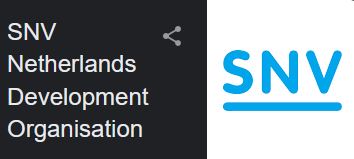| Course Date | Nairobi Training fees: | Mombasa Training fees: | Kigali Training fees: | Live Online fee: | Register for Onsite in Nairobi, Mombasa and Kigali |
Register for online training |
|---|---|---|---|---|---|---|
| 09/06/2025 To 13/06/2025 | 1,500 USD | 1,700 USD | 3,000 USD | 900 USD | Register for Onsite | Register for Online |
| 07/07/2025 To 11/07/2025 | 1,500 USD | 1,700 USD | 3,000 USD | 900 USD | Register for Onsite | Register for Online |
| 04/08/2025 To 08/08/2025 | 1,500 USD | 1,700 USD | 3,000 USD | 900 USD | Register for Onsite | Register for Online |
| 08/09/2025 To 12/09/2025 | 1,500 USD | 1,700 USD | 3,000 USD | 900 USD | Register for Onsite | Register for Online |
| 06/10/2025 To 10/10/2025 | 1,500 USD | 1,700 USD | 3,000 USD | 900 USD | Register for Onsite | Register for Online |
| 03/11/2025 To 07/11/2025 | 1,500 USD | 1,700 USD | 3,000 USD | 900 USD | Register for Onsite | Register for Online |
| 01/12/2025 To 05/12/2025 | 1,500 USD | 1,700 USD | 3,000 USD | 900 USD | Register for Onsite | Register for Online |
INTRODUCTION
In the globally competitive world of the 21st century business decision-makers face unprecedented levels of risk and uncertainty - to survive and flourish in this challenging environment organizations need the right tools with which to analyses problems and anticipate and manage the many opportunities and threats that may emerge.
Traditional forms of financial analysis and forecasting no longer meet these needs and the most progressive firms are using the power of financial models to help them analyses the challenge and take a more powerful approach to manage risk in their planning and forecasting.
Financial management is the planning, organising, directing and controlling an organisation’s financial activities such as procurement and the utilisation of funds. The purpose of this course is to provide participants with the fundamental financial knowledge and skills to enable them to participate in business activities such as financial planning, financial control and to make savvy financial and investment decisions.
DURATION
5 Days
WHO SHOULD ATTEND?
LEARNING OBJECTIVES
At the end of the course participants will be able to:
TOPICS TO BE COVERED
Module 1
Fundamentals of accounting statements-the profit and loss account
Fundamentals of accounting statements-the balance sheet
Financial analysis techniques-ratio analysis
Module 2
Cash flow analysis and accounting issues
Understanding cash flows
Cash flow analysis
Cash flow analysis-taking it further
Accounting abuses and update
Global accounting in the new century
Module 3
Financial mathematics and project analysis
The time value of money
Net present value -developing the concept
Project analysis
Evaluating capital investment projects
The responsibilities of management
Costing and break-even analysis
Module 4
Spreadsheet analysis skills
Introduction to spreadsheets
Module 5: Financial Accounting
Module 6: Analysis of Financial Statements
Module 7: Short-term Financial Management Decisions
Module 8: Long-term Financial and Investment Decisions
Training Approach
This course will be delivered by our skilled trainers who have vast knowledge and experience as expert professionals in the fields. The course is taught in English and through a mix of theory, practical activities, group discussion and case studies. Course manuals and additional training materials will be provided to the participants upon completion of the training.
Tailor-Made Course
This course can also be tailor-made to meet organization requirement. For further inquiries, please contact us on: Email: training@upskilldevelopment.com Tel: +254 721 331 808
Training Venue
The training will be held at our Upskill Training Centre. We also offer training for a group at requested location all over the world. The course fee covers the course tuition, training materials, two break refreshments, and buffet lunch.
Visa application, travel expenses, airport transfers, dinners, accommodation, insurance, and other personal expenses are catered by the participant
Certification
Participants will be issued with Upskill certificate upon completion of this course.
Airport Pickup and Accommodation
Airport pickup and accommodation is arranged upon request. For booking contact our Training Coordinator through Email: training@upskilldevelopment.com, +254 721 331 808
Terms of Payment: Unless otherwise agreed between the two parties payment of the course fee should be done 3 working days before commencement of the training so as to enable us to prepare better








We support the development of a skilled and confident workforce to meet the changing demands of growing sectors by offering the best possible training to enable them to fulfil learning goals.
Make a Mark in You Day to Day work